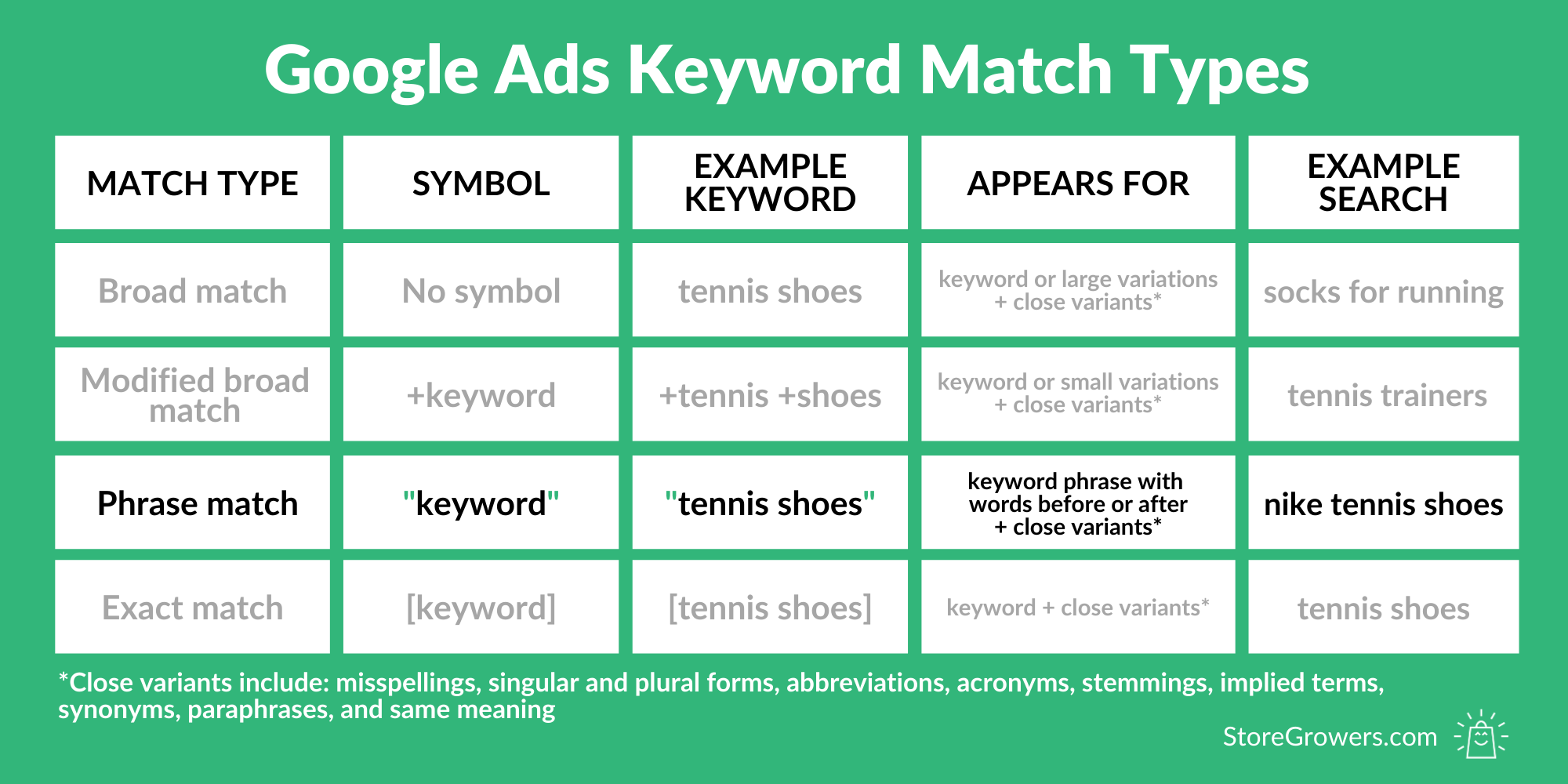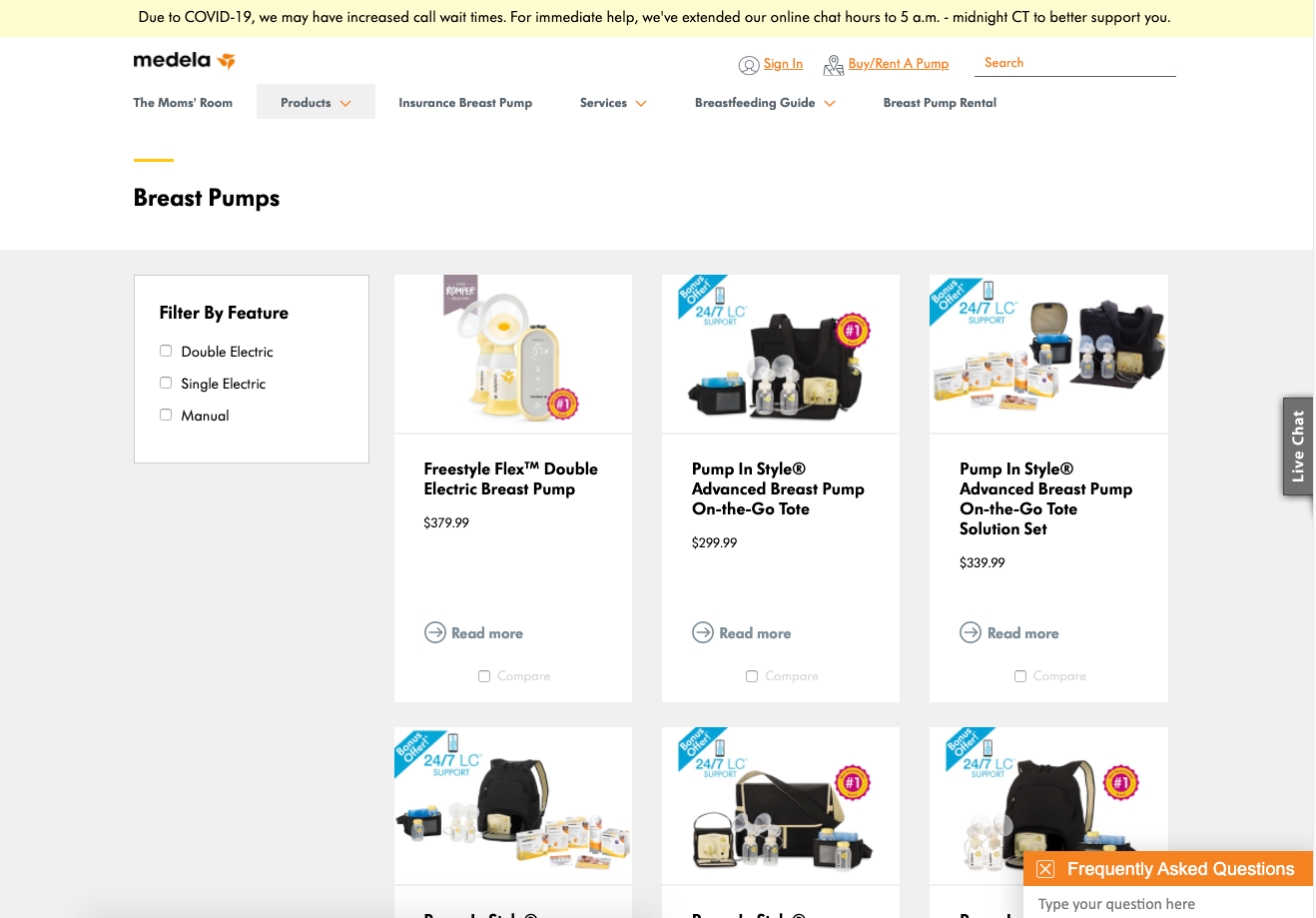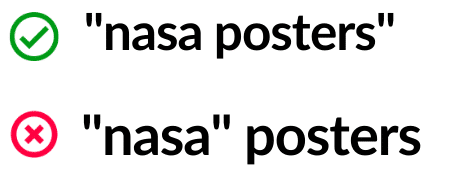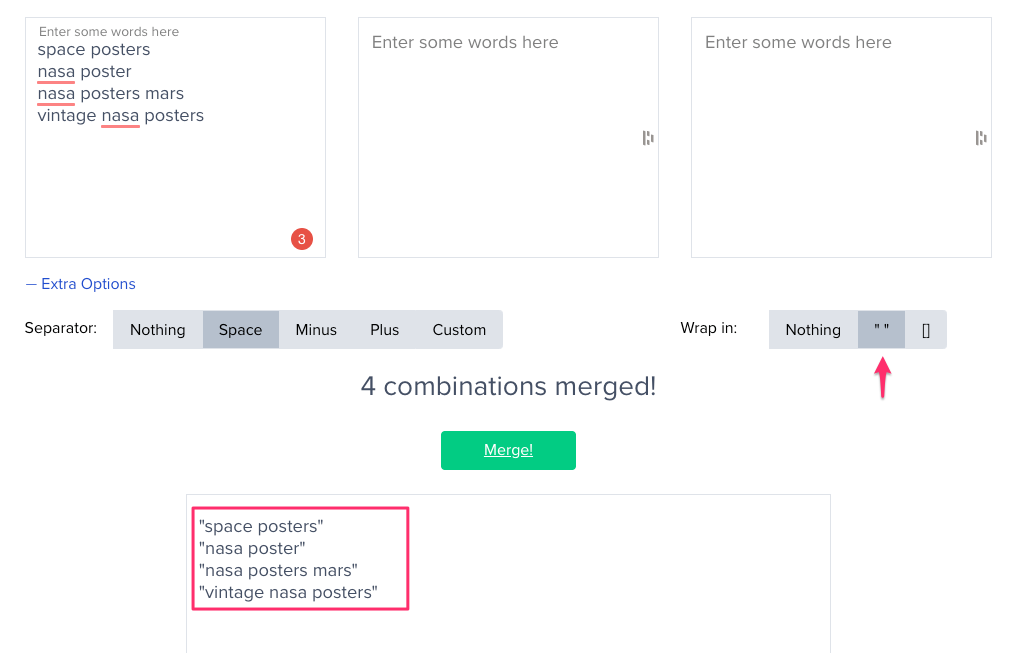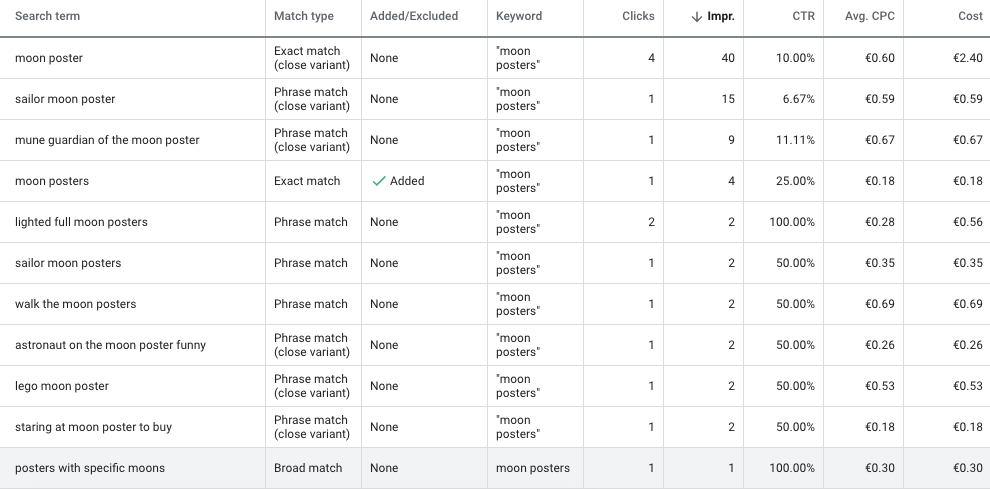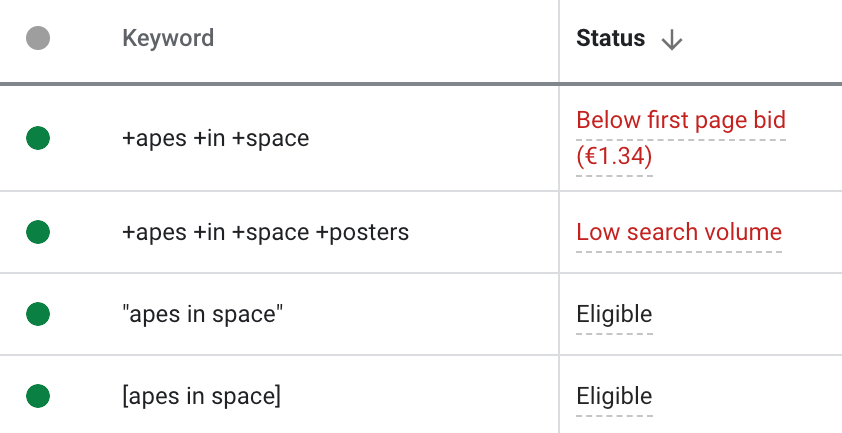Phrase match is one of the four keyword match types available in Google Ads.
It is a way to indicate to Google how closely they should match your keyword with a user’s search query.
broaThe quotation marks of phrase match (kind of) limits your search to the words and the word order that you specify.
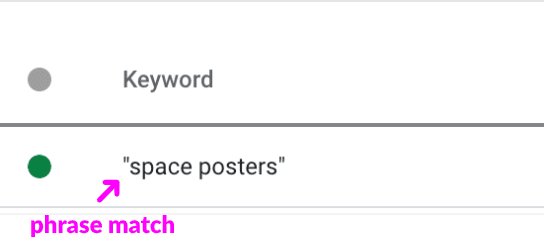
The reason I say kind of is that there have been a lot of changes that have made this match type a little less straightforward.
So in this article, we’ll take a closer look at how to phrase match really works today and when you should use it.
Table of Contents
When To Use Phrase Match
Phrase match type is more restrictive than modified broad match.
That means it is well suited to situations where you know the actual keywords, or at least part of them.
This can be because you did keyword research or because you encountered this keyword in the search terms report of your Google Ads campaigns.
Here is how Google defines phrase match:
A keyword setting that allows your ad to show only when someone’s search includes the exact phrase of your keyword, or close variations of the exact phrase of your keyword, with additional words before or after.
The reason for adding a phrase match keyword to an ad group is to get more focused traffic compared to a modified broad match, but still, show your ad for search queries that are similar to the phrase you provide.
Phrase match requires all of the words in your keyword to be there in that precise order. So if a user adds words before or after the phrase you specify, your ad will show up.
At the start of a new campaign, I usually include a couple of phrase match keywords for the most popular keywords in the ad group. That gives a good idea of the actual search volume on that specific phrase and opens the door for more optimizations.
So let’s say you are Medela, a manufacturer that sells breastfeeding products and you’ve been advertising one of your categories: breast pumps.
Starting out, you weren’t entirely sure about the exact search queries people use, nor did you know which of your products would be the most popular.
So you started off with a modified broad match keyword: +medela +breast +pumps. The ad in this ad group is a generic one that points people to the category page shown above.
Going through the search terms report, you find that one of your tops searched for queries is “medela double electric breast pump”.
You can either add this phrase match keyword to the existing ad group with a specific URL. Or you create a new ad group around this keyword with an ad that talks about that specific product. This last option is great to improve the quality score of the keyword.
How To Use Phrase Match
Using phrase match is pretty simple, just put quotation marks around your keyword.
Note that you have to add all parts of the keywords in quotation marks, any other variation will not work correctly.
If you have a lot of keywords, adding quotation marks around all of them can be a pretty repetitive task.
So to speed things up, I often use a tool like Mergewords which turns a list of keywords into phrase match keywords.
Updates to Phrase match: Close Variants
I’ve mentioned at the top of the article that the phrase match today is a little different today vs when Adwords got started.
Over the years, there have been a number of changes that have affected how close Google matches the keywords that you put in quotations.
Google calls these close variants of keywords:
“Close variants allow keywords to match to searches that are similar, but not identical to the targeted keyword.”
There are a couple of different categories of these close variants that are relevant to phrase match:
- Misspellings: “nasa posters” and “nsa posters”
- Singular or plural forms: “posters nasa” and “poster nasa”
- Stemmings (for example, floor and flooring)
- Abbreviations: “tv remote” and “television remote”
- Accents: “café supplies” and “cafe supplies”
- Same meaning: “nasa prints” and “nasa posters”
Most of the changes in the list above are a good thing. They’ve allowed reducing the number of keywords in your account while still getting all of the variations and without undermining the essence of phrase match: the word order.
But the last one in that list, the same meaning update has bigger implications. We’ll explore the practical implications in example #2 of the next section.
Phrase match examples
Let’s take a look at some examples of how to use phrase match.
Example 1 – Standard phrase match
| Keyword in the account | ✅ Matches with | ❌ Doesn’t match with |
| “nasa poster” | buy nasa posters | does nasa have free posters |
| “ceramic skillet” | is ceramic skillet non stick coating safe? | ceramic cookware |
Example 2 – Same meaning close variant
The same meaning close variant can make things a little more complicated.
| Keyword in the account | ✅ Matches with | ❌ Doesn’t match with |
| “nasa posters” | buy nasa prints | nasa wallpaper |
| “ceramic skillet” | iron vs ceramic frying pan | iron frying pan |
That both the posters and prints keywords trigger the same search queries might seem like a small thing.
But if you have built out your campaign structure with tons of ad groups that each laser focus on a particular keyword (like SKAGs), that becomes a problem:
- Ad group 1: nasa posters with keyword “nasa posters”
- Ad group 34: nasa prints with keyword “nasa prints”
So what should you do?
Example 3 – Practical case study of phrase match
In one of my Google Ads accounts, I’m using “moon posters” as a phrase match keyword.
This is the search terms report for that keyword:
These all contain the phrase moon posters. But you can see that there still is a lot of junk that doesn’t have anything to do with my actual product, posters of the Moon.
This reflects the keyword research nature of a phrase match keyword during the early stages of a new account.
That list might contain a lot of junk, its an opportunity to beef up my negative keyword lists.
Now let’s take a look at the differences between phrase match and the other match types.
Phrase match vs broad match
The first one is how a phrase match keyword compares to a broad match one.
While the difference in syntax between the two is small, two quotation marks, the results are very different.
| Phrase match | Broad match | |
| Syntax | Quotation marks | None |
| Number of potential impressions | Limited | Large |
| Keyword research purposes | Limited | Good |
| Keyword + search query match | High | Low |
| Ad text + search query match | High | Very low |
| Landing page + search query match | High | Very low |
Looking at the table above, the two match types are quite different.
The biggest difference is that with phrase match, you know a lot better which search queries your ads will appear for. And that allows you to increase the match between the search query, keyword, ad text, and landing page. Which all lead to a better outcome from your clicks.
The big downside is that for this increased control over search queries, you give up a lot of search volume.
Phrase match vs exact match
The differences between phrase and exact match are a lot smaller.
| Phrase match | Exact match | |
| Syntax | “Quotation marks” | [Square brackets] |
| Number of potential impressions | Low | Very low |
| Keyword research purposes | Limited | Very limited |
| Keyword <> search query | High | Very high |
| Ad text <> search query | High | Very high |
| Landing page <> search query | High | Very high |
The biggest difference between the two is that exact match is more restrictive than phrase match.
While that allows for even more control over the precise search query your ad will appear for, it further restricts the number of clicks it will get.
Combining match types
As this article has shown, there are pros and cons to every match type, including phrase match.
That’s why its good to combine them in the same ad group.
Take for example the following ad group:
I combine 2 modified broad match keywords, a phrase, and an exact match keyword.
The reason for this is that after running this campaign for a while with the modified broad match type only, “apes in space” turned out to be the most searched for search query.
That’s why I added the phrase and exact match variants as well. That allows me to control my visibility and the bid for this specific phrase. Because it happens very often that different match types will have different quality scores and achieve different results.
Negative Phrase Match Keywords
Phrase match can also be applied to negative keywords.
That can help to exclude your ads from showing up for certain phrases.
Opposite to regular keywords, a negative phrase match keyword is less restrictive than its broad match variant.
Re-using parts of my example of “moon posters” earlier in this article, I spotted the search query: sailor moon posters.
Sailor moon is a Japanse manga cartoon, completely useless for what I’m selling.
So if I add “sailor moon” as a negative keyword, no search queries using that phrase in that order can show up.
But since it only excludes that exact phrase, my ads can still appear for a query like “sailor captures amazing shot of moon poster”.
👍👎 Should You Still Use Phrase Match?
So should you still use phrase match in 2020?
Yes, Phrase match is a solid match type and should be part of every campaign.
It’s precise enough that you won’t be paying for keywords that aren’t a good fit but will still bring enough new keywords to continue to build out your account.
And in combination with the other match types, it offers both enough volume and high enough visitor quality.
